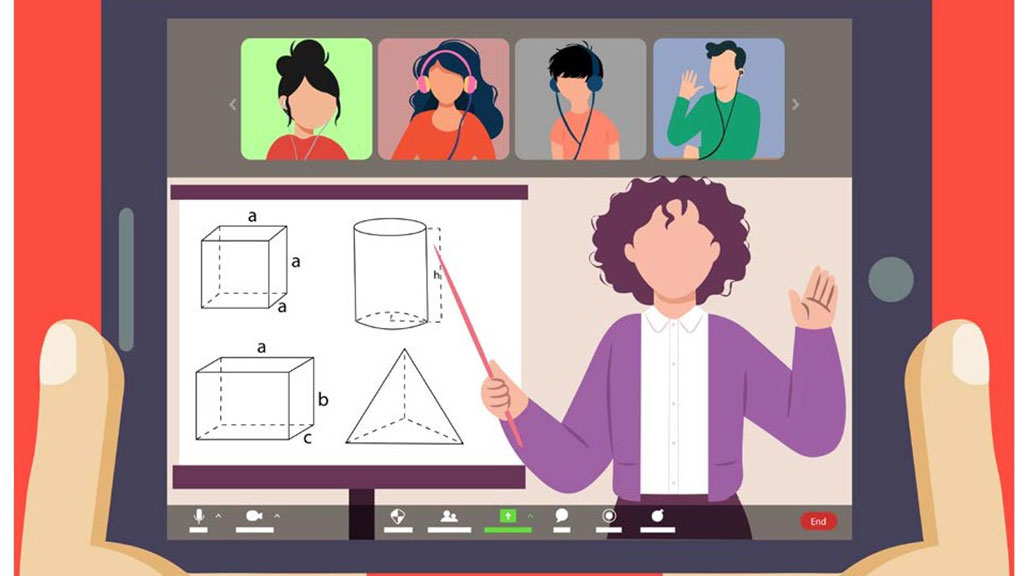Students benefit from connecting learning in the classroom and the workplace, and from hybrid and online model
The Open University (OU) presents its 10th annual Innovating Pedagogy report covering 10 emerging pedagogical approaches that have been accelerated by the pandemicAmong other factors, they highlight connecting learning in classrooms and industry workplaces, microcredentials and 'walk-and-talk' sessions
Researchers at the Universitat Oberta de Catalunya have worked with the OU for the first time to prepare this key document for the education sector

The Innovating Pedagogy 2022 report highlights advances in pedagogy and teaching around the world, and puts forward promising innovations to take into account. The combination of practice in the academic and professional fields recognized by microcredentials, the role of educational influencers and the development of autonomy for learning are some of the 10 pedagogies included in the 10th edition of this report led by the UK's Open University (OU). The report was produced in collaboration with academics in the Faculty of Psychology and Education Sciences and the Faculty of Computer Science, Multimedia and Telecommunications at the Universitat Oberta de Catalunya (UOC).
Albert Sangra, Professor of Education at the UOC and a researcher in Edul@b group, said that "this invitation underlines the good understanding between the two universities at the forefront of online education".
Sangrà was involved in drafting the report, alongside Montse Guitert and Marcelo Maina, from the Faculty of Psychology and Education Sciences and Edul@b, and Josep Prieto, a member of the UOC's Faculty of Computer Science, Multimedia and Telecommunications and the IN3's Kison research group.
"The report highlights 10 pedagogies that have been strengthened by the pandemic," said Sangrà. He explained that, during this time, online education "strengthened its identity and had a decisive influence on pedagogical approaches to classroom education".
The pedagogies highlighted in the report:
- Dual learning scenarios used in university learning benefit students by linking classroom learning and practical training in industry.
- Hybrid models combine face-to-face and online learning. Their use increased during the pandemic, but a great deal of room for improvement remains.
- Pedagogy of autonomy is based on learning to learn. This method prioritizes students taking responsibility for their learning. It has also been taken up extensively over the last two years.
- Pedagogies of microcredentials are based on the recognition and accreditation of short courses that combine academic and professional practice, enabling other groups to train and develop new skills.
- Influencer-led education: one of the most controversial issues is the role influencers play on social media. The report explores the impact they have.
- Pedagogies of the home, the informal teaching and learning practices that take place in the home, were also covered by the experts drafting the report.
- Pedagogy of discomfort sees students criticize their systems of thought on issues such as racism or injustice, which can act as the basis for fostering learning and educational transformation.
- Walk-and-talk: the report analyses the effect of combining movement and conversation on learning. When students who study online meet up to walk and talk about what they are studying, this fosters creative thinking, and counters the loneliness they sometimes experience.
- Watch parties involve people from all over the world simultaneously participating in online sessions or watching the same video or presentation thanks to the increasingly global use of the internet. The practice combines more structured learning with the greater social engagement of a face-to-face class.
- Well-being education: students worldwide are experiencing pressure on their mental health. Incorporating this practice at institutions benefits both individuals and the institution itself.
"In many parts of the world, the ways in which we provide and participate in education are radically changing. The annual Innovating Pedagogy reports highlight the rapid pace of change, while striving to balance this with sound evidence-based advice, common sense and clarity," said Agnes Kukulska-Hulme, Professor of Learning Technology and Communication at the Open University, and the leader of the team of researchers who produced the report.
Kukulska-Hulme explained that "open universities have led the way in online education, which was a novelty until recently […] That's why we've partnered with academics from the Universitat Oberta de Catalunya for this 2022 report."
This report supports sustainable development goal (SDG) 4, Quality Education.
Report reference:
Kukulska-Hulme, A., Bossu, C., Charitonos, K., Coughlan, T., Maina, M., Ferguson, R., FitzGerald, E., Gaved, M., Guitert, M., Herodotou, C., Prieto-Blázquez, J., Rienties, B., Sangrà, A., Sargent, J., Scanlon, E., Whitelock, D. (2022). Innovating Pedagogy 2022: Open University Innovation Report 10. Milton Keynes: The Open University.
UOC R&I
The UOC's research and innovation (R&I) is helping overcome pressing challenges faced by global societies in the 21st century, by studying interactions between technology and human & social sciences with a specific focus on the network society, e-learning and e-health.
The UOC's research is conducted by over 500 researchers and 51 research groups distributed between the university's seven faculties, the E-learning Research programme, and two research centres: the Internet Interdisciplinary Institute (IN3) and the eHealth Center (eHC).
The University also cultivates online learning innovations at its eLearning Innovation Center (eLinC), as well as UOC community entrepreneurship and knowledge transfer via the Hubbik platform.
The United Nations' 2030 Agenda for Sustainable Development and open knowledge serve as strategic pillars for the UOC's teaching, research and innovation. More information: research.uoc.edu #UOC25years
Experts UOC
Press contact
-
Editorial department
